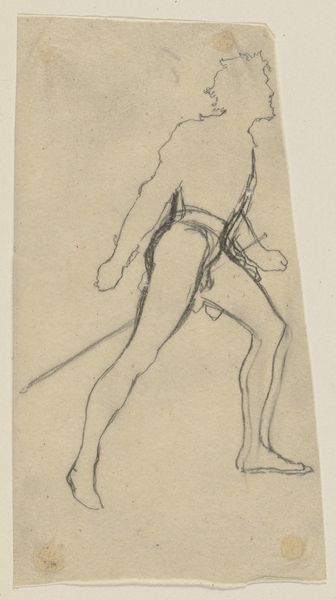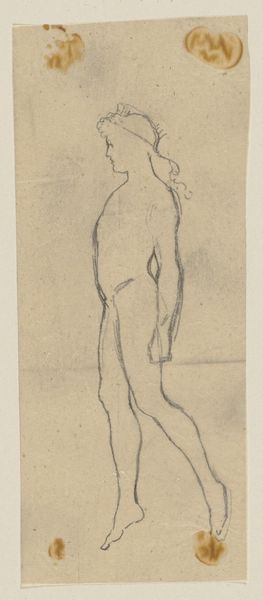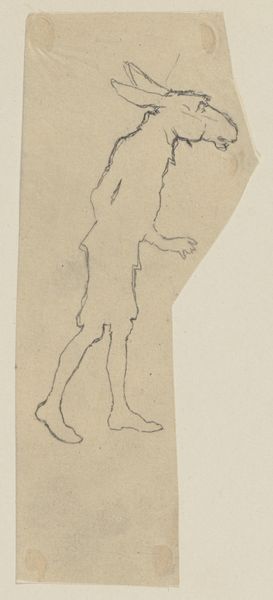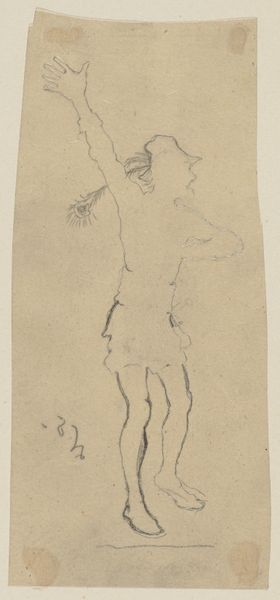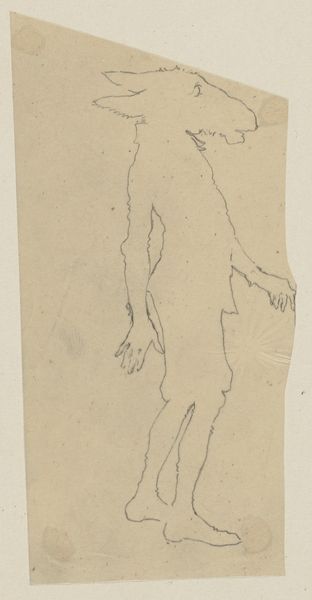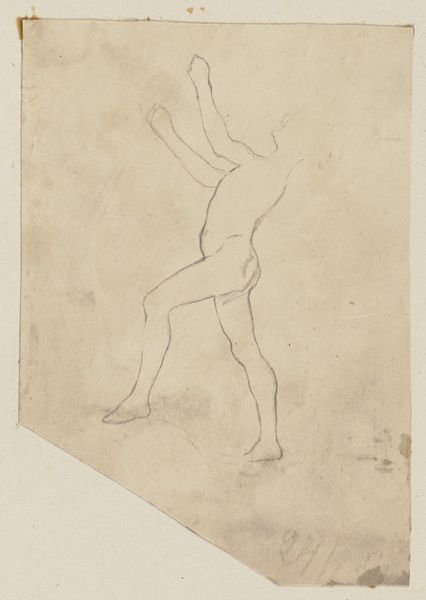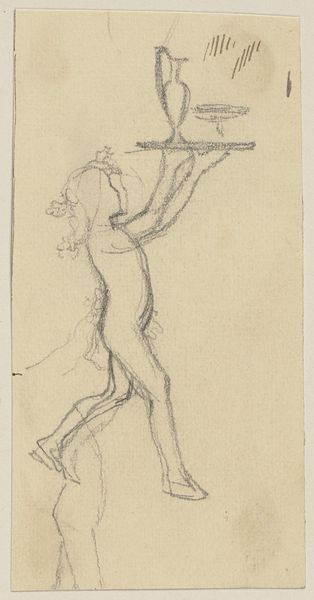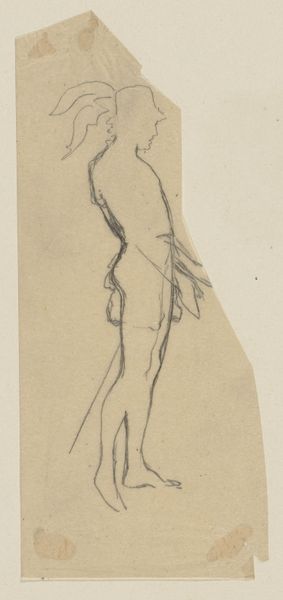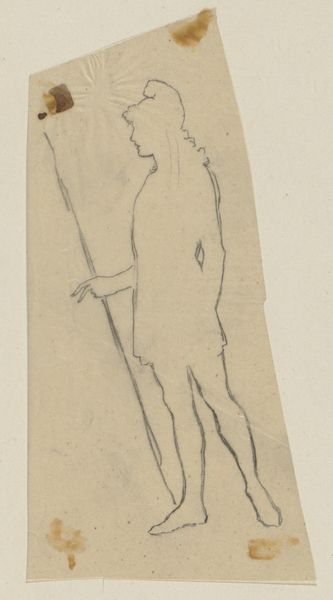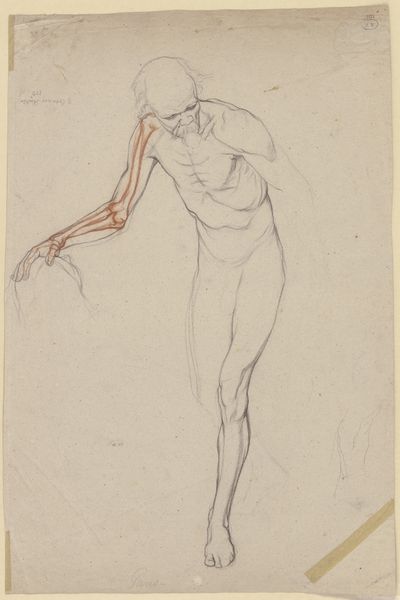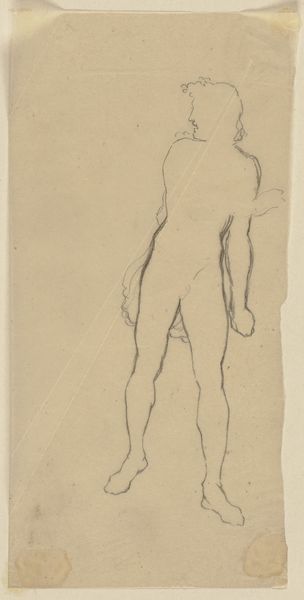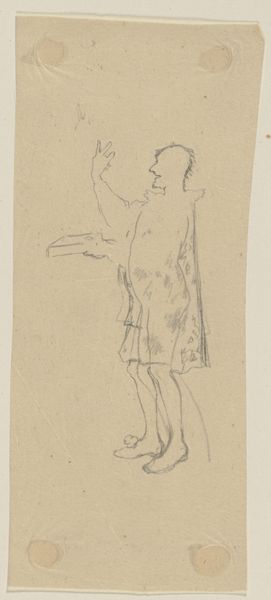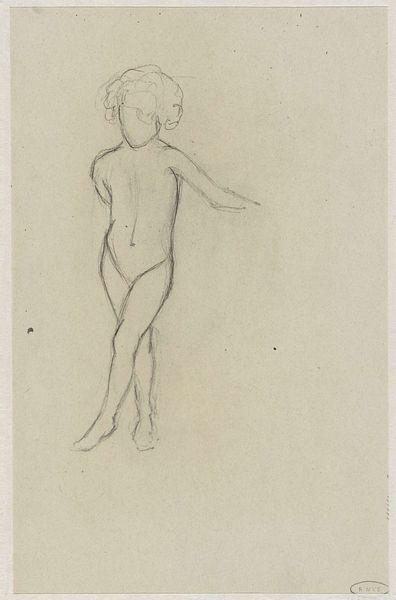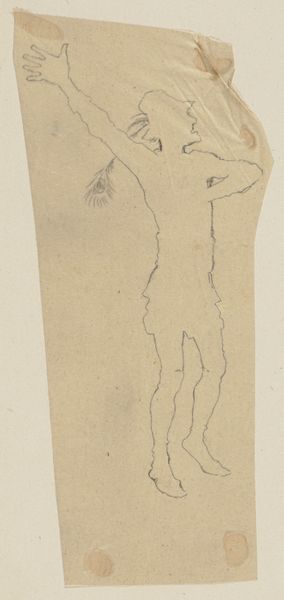
Puck mit der Zauberblume, den Zeigefinger an die Lippen gelegt c. 1867 - 1868
0:00
0:00
Copyright: Public Domain
Curator: A hurried, somewhat frantic energy emanates from this sketch. Editor: This is Paul Konewka's "Puck mit der Zauberblume, den Zeigefinger an die Lippen gelegt," dating from around 1867-1868, currently held in the Städel Museum. It’s a pencil drawing on paper. What makes you say frantic? Curator: Look at the figure, caught mid-stride. The gesture to the lips is meant to be silencing, but it feels more like suppressing excitement. A stolen secret, a breathless dash. He’s holding a 'magic flower', what kind of emotional power dynamic does that suggest? What happens when he speaks? The fragility of keeping his voice down creates tension. Editor: I see your point. But from my view, consider the conditions of its creation: the rough pencil strokes, the bareness of the paper itself, signal the constraints Konewka operated under. Cheap paper like this was typical of reproductive printmaking that supported a huge commercial demand in the period. Curator: Commercial demand shaped his subject matter and symbolic language too, right? Puck, originating in Shakespeare, was already a powerful myth by this time. So, Konewka is less making something entirely new but taking something already resonant with cultural weight and amplifying its signal through his own technique. How were the social currents impacting what Konewka was able to work with at the time? Editor: Precisely. The line work, thin and rapidly applied, suggests not just speed but perhaps also the disposability inherent in mass production. Even the Romanticism feels dialed up a notch to suit popular tastes. So that magic is a carefully calculated effect delivered with these industrial-like methods of image construction. There's some cost that is associated with artistic labor under particular historical and market conditions. What might that be here? Curator: I see the appeal of considering how it has changed over time and what this all symbolizes and reflects! It highlights our complicated relationship with stories we want to continue to tell in certain historical moments. Thanks, I appreciate seeing Konewka's world through a Materialist lens. Editor: The feeling is mutual!
Comments
No comments
Be the first to comment and join the conversation on the ultimate creative platform.
